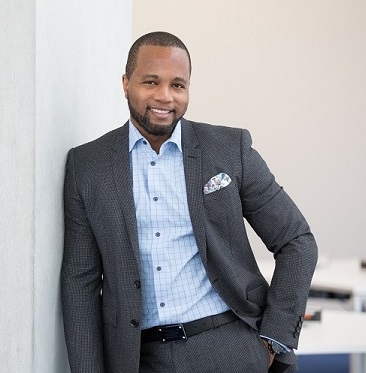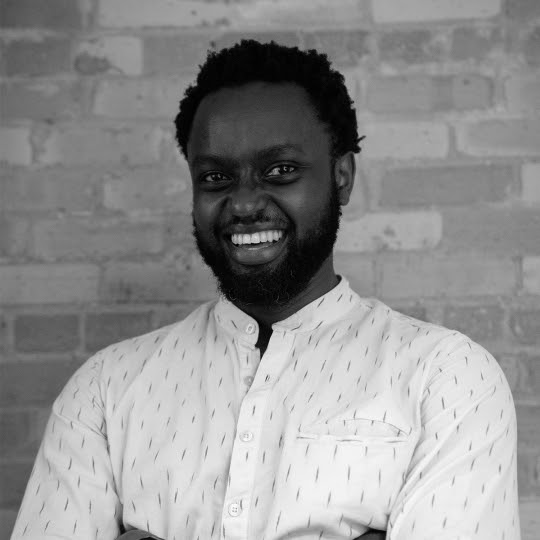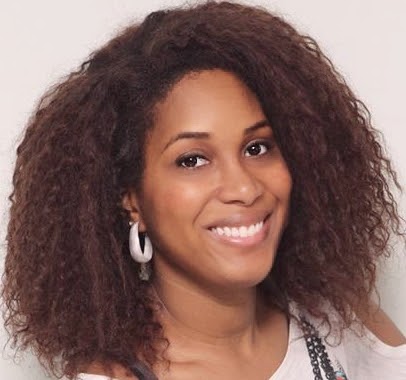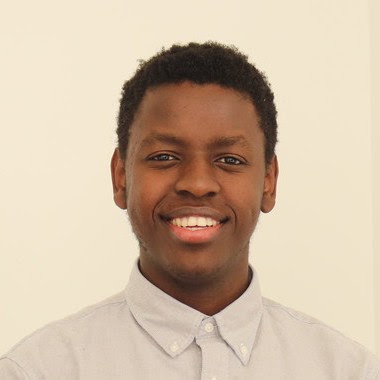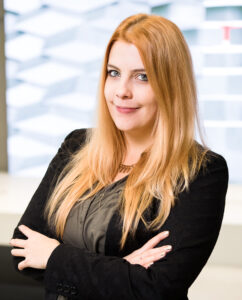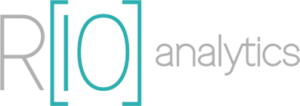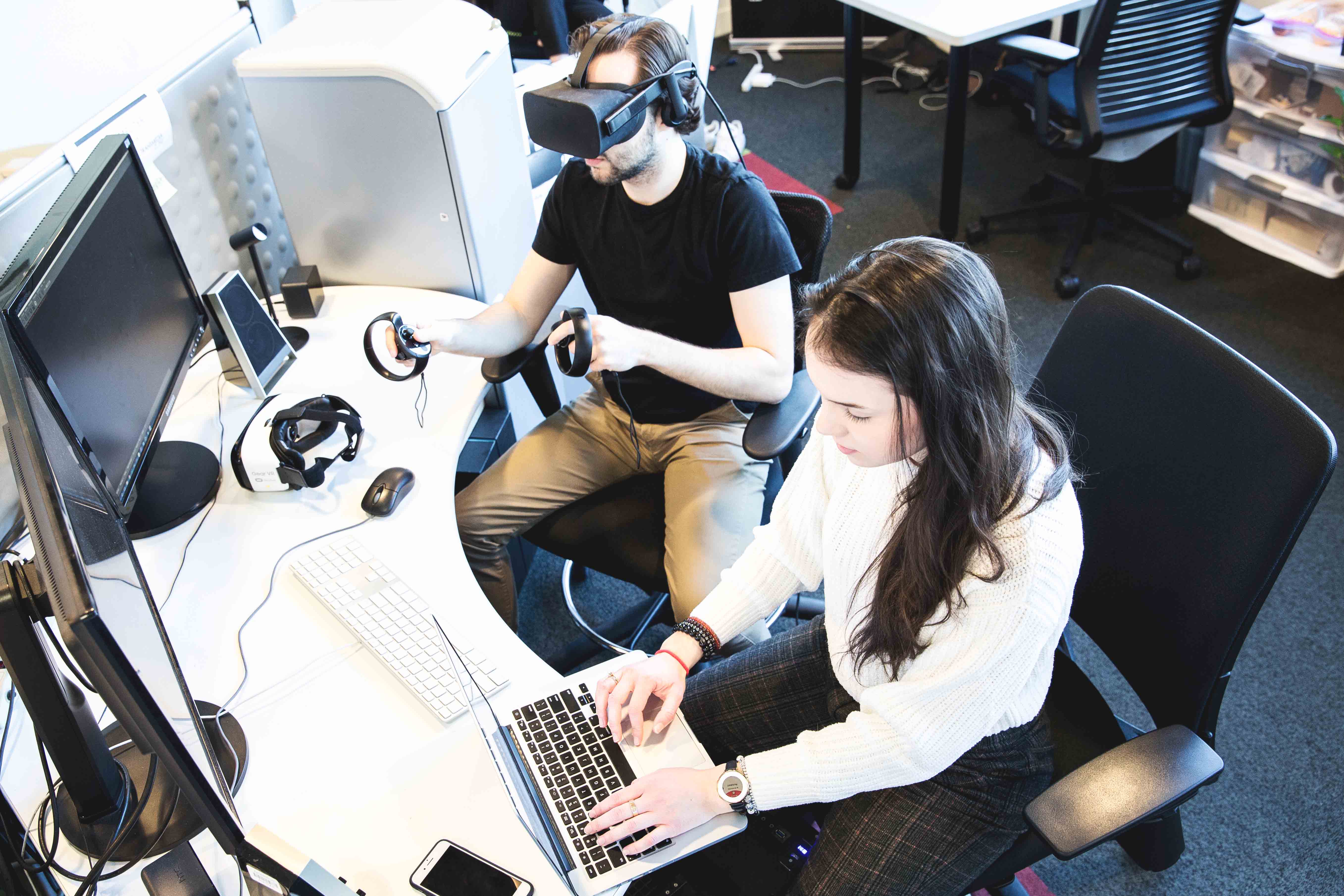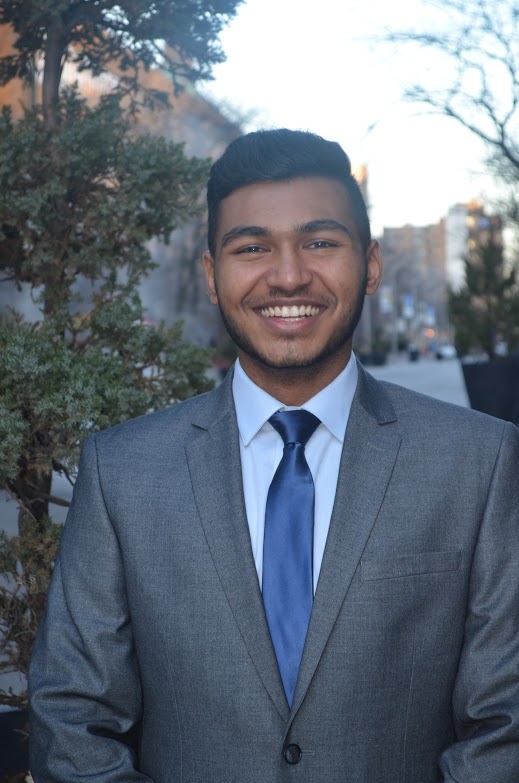
Andrew Wells (Pinch, CEO and Founder, pictured left) and Ashu Syal (Pinch, Director of Product, pictured right) met in the DMZ’s first-ever Sandbox cohort in 2018.
Andrew was an enthusiastic new DMZ founder and Ashu was a newly hired DMZ Program Lead. This duo is now working together at Pinch Financial (Pinch), a DMZ startup that is utilizing AI to revolutionize the mortgage application process. Pinch is a digital platform that makes applying for a mortgage fast, easy, and secure. The platform connects people directly with lenders, taking brokers out of the equation to empower users to make their own decisions. Pinch’s blog makes real-estate insider knowledge accessible for everyone.
We sat down with Andrew and Ashu to learn more about Pinch and the journey that led them to develop the partnership of a lifetime.
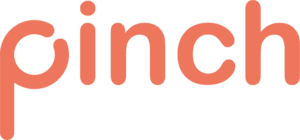 Why did you start Pinch?
Why did you start Pinch?
Andrew: I had just graduated and was working at a bank as an account manager. I hated it. I saw first-hand how awful and inaccessible mortgage applications are, the process is a disservice to hard-working people. I knew there had to be a better way, so I started Pinch.
Broker’s wages have gone up by 400% in the past 12-15 years, but the everyday person’s income has not. I’m not saying all brokers are bad, but the system is broken. I started Pinch to shine a light on the toxicity of the whole process.
 Can you tell me more about Pinch’s time at the DMZ?
Can you tell me more about Pinch’s time at the DMZ?
Andrew: We joined the DMZ’s Sandbox program in 2018 with two staff members. Ashu was our Programs Lead and together we created Pinch’s first prototype, raised our first seed round, developed our MVP and then graduated to the Incubator program. We demoed at the 2019 Collision Conference in Toronto (Pinch team pictured on the left with Collision Conference’s Pinch feature TTC ad) and that really sparked important investor relationships at major banks.
We hired our first engineer, then two more engineers and then a designer, currently half of our current staff came directly from relationships we made while part of the DMZ community.
No one has ever done what Pinch is doing. The DMZ understood the gravity of that and gave us all the space, knowledge, and resources we needed to build our business, the right way.
Banking and real estate are both highly regulated industries. How did Pinch break in?
Andrew: It’s true, the mortgage process has not changed since 1997…This makes pitching new tech to banks uniquely hard. Our EiRs (Entrepreneurs in Residence) taught us how to find the right bank executives, stakeholders, and investors and speak their language… we needed that insider knowledge available to founders at the DMZ to successfully break in. 
Andrew, what led you to approach Ashu to join your team full time?
Andrew: Everything was going well, but there was this disconnect growing among our marketing, financial and tech development teams. We needed someone who spoke each of our languages and could bring us together. Our best work always happened at the DMZ with Ashu. We knew he was our guy.
Ashu, why did you want to join the Pinch team?
Ashu: My wife and I had just started applying for a house when Andrew approached me. It took us more than a month to get a mortgage. We went to open houses and people were outbidding us before we even walked through the door. The whole process felt impossible. It was so stressful. I have a lot of empathy for what mortgage applicants go through.
Pinch is creating new startup practices and utilizing old ones where necessary. They are setting people-centred standards not just for the homeownership industry, but for how we build technology in general. Pinch’s mission really aligns with my own values, I’m really excited to be here.
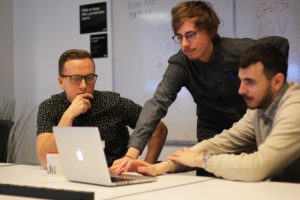 What’s next for Pinch?
What’s next for Pinch?
Andrew: We are launching our product in a new and big way, with big bank partners. It is going to change the way people approach homeownership. It is a fundamental shift in how someone can get a property.
This (buying a house) can be the most important decision of someone’s life. Our team does not take that lightly. I started Pinch to make sure buying a house was accessible and secure for people. That human-centred mission will continue to always drive every decision we make.
Whether our company is successful in 10 years or not…what we have done is pushed bank executives and mortgage brokers to truly grapple with this topic for the first time ever, and we are really proud of that.
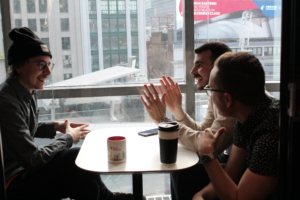 Ashu, what are you most looking forward to in the future?
Ashu, what are you most looking forward to in the future?
Ashu: I wouldn’t be where I am today without the right people telling me to stop building my ideas in a basement and come into an incubator space… Making sure that pathway is open to others, particularly for those who historically have a hard time coming into this industry will always be important to me, will forever excite me, especially because of my time at the DMZ.
DMZ startups like Pinch not only get the tailored support they need to become world-leading businesses but get access to the DMZ’s thriving talent pool of driven industry innovators.
Learn more about DMZ Sandbox here.


